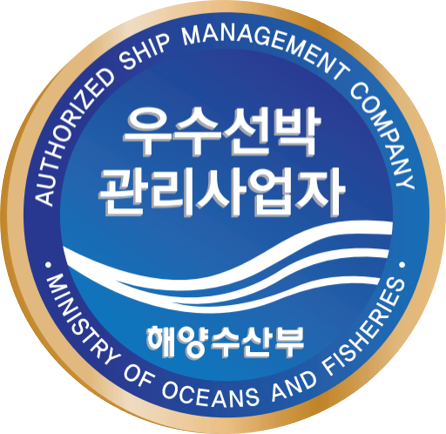Turkey: 2020 tariffs for pollution fines updated
페이지 정보
작성자 최고관리자 댓글 0건 조회 1,634회 작성일 20-11-17 18:34본문
Turkey: 2020 tariffs for pollution fines updated
After the launch of the IMO's 2020 sulphur cap, Turkey updated its fines concerning tariffs for pollution; Accordingly, the new tariffs concern real persons and are applicable from 01/01/20 to 31/12/20.
Pollution
The pollution fines are issued by the Turkish Environment Code dated 1983, number 2872.
Namely, the fines are divided in four categories: A, B, C and D.
Category A: Pollution from tankers discharging petroleum products and derivatives (raw petroleum, fuel oil, bilge, oil mud, refined product oil waste etc.)
|
Up to 1,000 (inclusive) GT |
606.67 TL per unit GT |
|
Between 1,000 and 5,000 (inclusive) GT |
An additional 151.67 TL per unit GT |
|
Over 5,000 GT |
An additional 15.16 TL per unit GT |
Category B: Pollution from dirty ballast discharged to sea by tankers
|
Up to 1,000 (inclusive) GT |
110.53 TL per unit GT |
|
Between 1,000 and 5,000 (inclusive) GT |
An additional 22.05 TL per unit GT |
|
Over 5,000 GT |
An additional 3.51 TL per unit GT |
Category C: Pollution from ships and other sea vehicles that release petroleum/ petroleum derivatives (bilge, oil mud, freight mud, fuel oil, oil waste or dirty ballast, etc.)
|
Up to 1,000 (inclusive) GT |
303.34 TL per unit GT |
|
Between 1,000 and 5,000 (inclusive) GT |
An additional 60.67 TL per unit GT |
|
Over 5,000 GT |
An additional 15.16 TL per unit GT |
Category D: Pollution from garbage and sewage discharged to sea by ships, tankers or other sea vessels
|
Up to 1,000 (inclusive) GT |
151.67 TL per unit GT |
|
Between 1,000 and 5,000 (inclusive) GT |
An additional 30.34 TL per unit GT |
|
Over 5,000 GT |
An additional 15.16 TL per unit GT |
In early 2019, the London P&I Club informed about the fines and provided recommendations on how to avoid the fines in Turkey.
How to prevent pollution fines in Turkey
From 1 January 2019 to 31 December 2020, new pollution fine tariffs are applying in Turkey. The London P&I Club informs about the fines and suggests ways to prevent them from taking place.
Pollution | 14/01/19
Petrol and Petroleum products discharged to sea by tankers:
· Up to 1000 (inclusive) gross tons: Per Ton * 400 TL
· Between 1000 and 5000 (inclusive) gross tons: Per Ton * 100 TL (Addition to 1)
· Over 5000 gross tons: Per Ton * 10 TL (Addition to 1 and 2)
Dirty ballast discharged to sea by tankers:
· Up to 1000 (inclusive) gross tons: Per Ton * 72.88 TL
· Between 1000 and 5000 (inclusive) gross tons: Per Ton * 14.54 TL(Addition to 1)
· Over 5000 gross tons: Per Ton * 2.32 TL (Addition to 1 and 2 )
Petrol/Petroleum products and dirty ballast discharged to sea by vessels or any other sea vehicles:
· Up to 1000 (inclusive) gross tons: Per Ton * 200 TL
· Between 1000 and 5000 (inclusive) gross tons: Per Ton * 40 TL(Addition to 1)
· Over 5000 gross tons: Per Ton * 10 TL (Addition to 1 and 2 )
Garbage and sewage discharged to sea by vessels and any other sea vehicles:
· Up to 1000 (inclusive) gross tons: Per Ton * 100 TL
· Between 1000 and 5000 (inclusive) gross tons: Per Ton * 20 TL(Addition to 1)
· Over 5000 gross tons: Per Ton * 10 TL (Addition to 1 and 2 ) (Today rate USD /5.38TL 17.12.2018)
Recommendations
· De-ballasting operations should be avoided unless the ballast water was checked and confirmed to be clean.
· All overboard discharge valves should be closed and secured/sealed in closed position.
· All deck scuppers should be plugged and any gaps in the fish plate surrounding the deck should be closed.
· Hose test of hatch covers, hydrostatic test of deck pipes/hoses or other equipment should not be performed.
· Washing of decks and superstructure should be avoided.
· Treated water from the sewage system and grey water should be transferred to a holding tank and should not be discharged until the vessel is outside Turkish waters.
· Cargo residues, cargo space cleaning residues, all garbage and other substances should not be disposed in Turkish waters.
· The vessel’s hull should not be scrapped, chipped or painted while alongside the pier or at anchor.
· While the vessel is at the shipyard or in dry dock, even if the pollution is caused by the negligence of the shipyard, its employees or agents, the ship may be held vicariously liable for the pollution fine. Therefore the crew members should exercise care and they should immediately protest in writing to the shipyard where they believe pollution took place.




